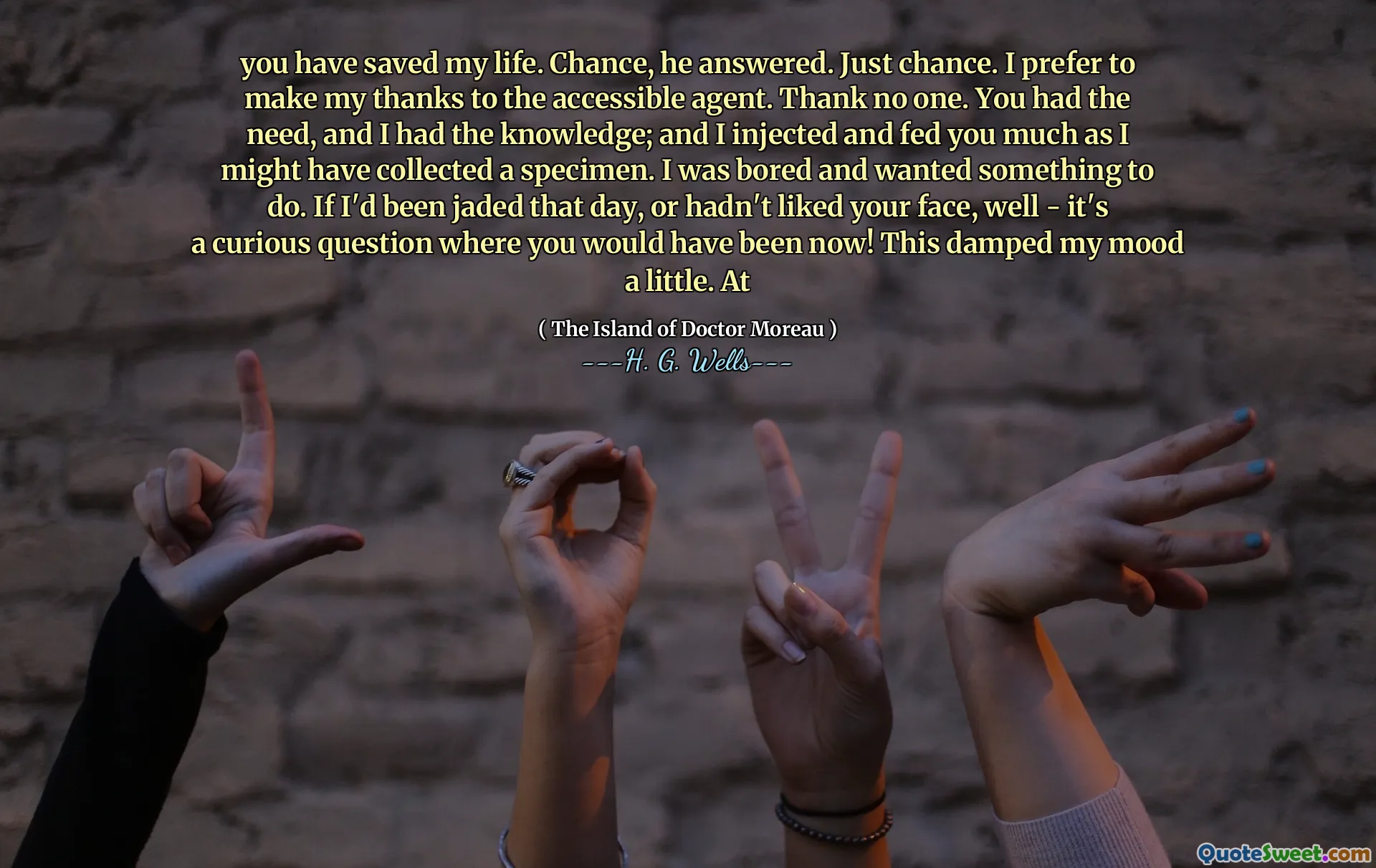
you have saved my life. Chance, he answered. Just chance. I prefer to make my thanks to the accessible agent. Thank no one. You had the need, and I had the knowledge; and I injected and fed you much as I might have collected a specimen. I was bored and wanted something to do. If I'd been jaded that day, or hadn't liked your face, well - it's a curious question where you would have been now! This damped my mood a little. At
In H.G. Wells' "The Island of Doctor Moreau," the conversation reveals a complex interplay between gratitude and chance. The speaker expresses appreciation for their life being saved, but Doctor Moreau dismisses personal thanks, attributing the situation to mere chance. He emphasizes that he acted out of boredom rather than altruism, suggesting that if he had felt indifferent, the outcome could have been drastically different. This reflection on fate versus intention underscores the capricious nature of life and survival. Moreau's perspective on his actions as a scientist implies that he views the creatures he experiments on more as specimens than individuals, raising ethical questions about his responsibilities. The notion that his feelings could have altered the course of events highlights the fragility of life and the arbitrary nature of existence. It challenges the characters, and readers alike, to consider the implications of their choices and the role of chance in shaping lives.
In H.G. Wells' "The Island of Doctor Moreau," the conversation reveals a complex interplay between gratitude and chance. The speaker expresses appreciation for their life being saved, but Doctor Moreau dismisses personal thanks, attributing the situation to mere chance. He emphasizes that he acted out of boredom rather than altruism, suggesting that if he had felt indifferent, the outcome could have been drastically different. This reflection on fate versus intention underscores the capricious nature of life and survival.
Moreau's perspective on his actions as a scientist implies that he views the creatures he experiments on more as specimens than individuals, raising ethical questions about his responsibilities. The notion that his feelings could have altered the course of events highlights the fragility of life and the arbitrary nature of existence. It challenges the characters, and readers alike, to consider the implications of their choices and the role of chance in shaping lives.











